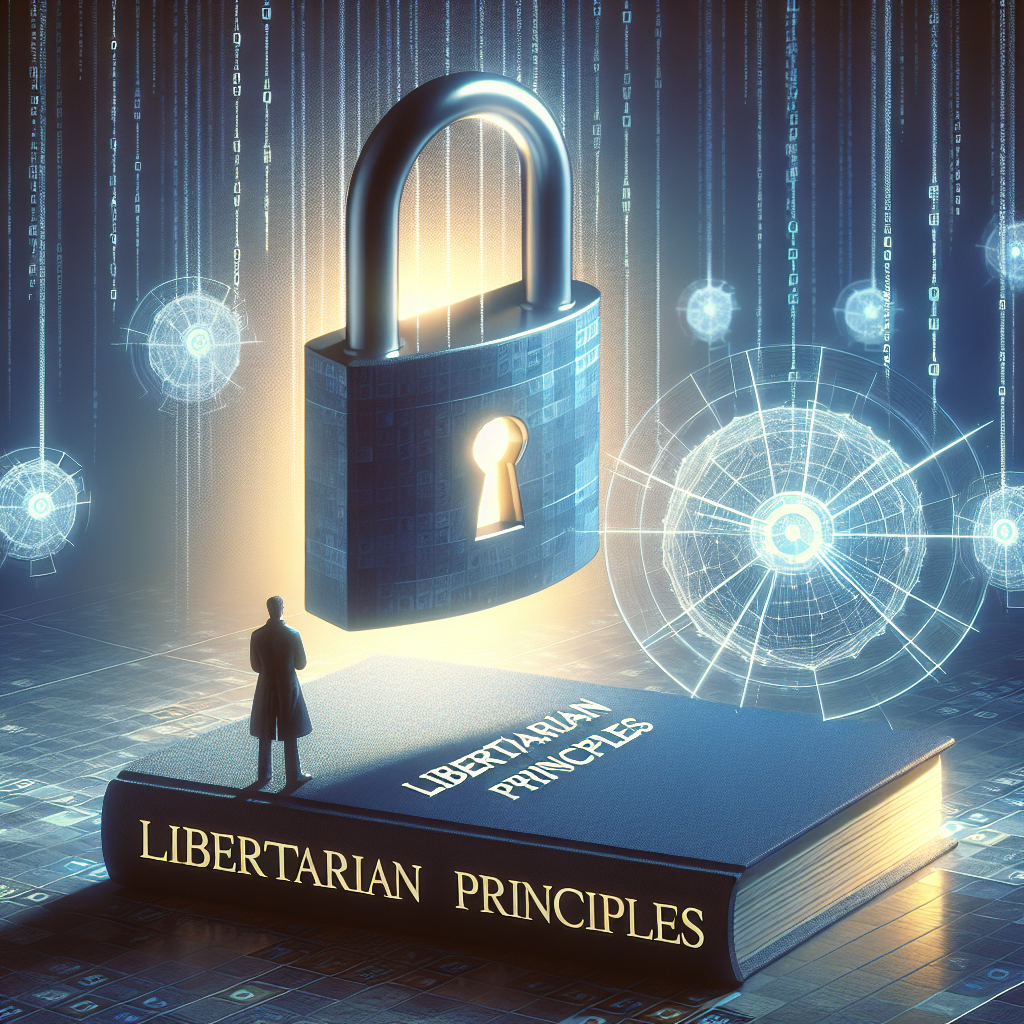How Libertarianism Addresses Cybersecurity and Privacy Concerns
In today’s digital age, where our personal and professional lives are increasingly intertwined with technology, cybersecurity and privacy have become paramount concerns. With rising threats such as hacking, data breaches, and pervasive government surveillance, the principles of libertarianism offer a unique perspective on how to address these issues. This article will explore how libertarian philosophies align with cybersecurity and privacy concerns, emphasizing individual empowerment, limited government intervention, and personal responsibility.
Understanding Libertarianism
Libertarianism is a political philosophy that emphasizes individual liberty, free markets, and minimal government intervention. It advocates for personal responsibility and the idea that individuals should have the freedom to make their own choices, as long as they do not infringe on the rights of others. When it comes to cybersecurity and privacy, libertarianism proposes solutions that value individual rights and personal data security.
The Role of Personal Responsibility in Cybersecurity
One of the core tenets of libertarianism is personal responsibility. In the realm of cybersecurity, this means individuals are encouraged to take the necessary precautions to protect their own data. Libertarians believe that educating the public about cybersecurity risks and self-defense strategies is more effective than relying on government regulations or interventions.
Implementing Best Practices
Libertarians advocate for informed decisions regarding online behavior. Key practices include:
- Strong Passwords: Encouraging the use of complex passwords and password managers.
- Regular Software Updates: Recognizing the importance of keeping devices and software up to date to mitigate vulnerabilities.
- Two-Factor Authentication: Promoting the use of multifactor authentication to add an extra layer of security.
By fostering a culture of personal responsibility, libertarians believe that individuals can significantly enhance their own cybersecurity.
Limited Government Intervention
Libertarianism promotes the idea that government intervention often leads to inefficiencies and infringements on personal freedoms. In the context of cybersecurity and privacy, this translates into skepticism about government surveillance and overly restrictive regulations that could stifle innovation.
The Risks of Government Surveillance
Government surveillance can lead to a chilling effect on free expression and a significant invasion of privacy. Libertarians argue that extensive data collection by government agencies poses risks to civil liberties without necessarily enhancing security. They advocate for transparency and accountability in how governments handle personal data and emphasize the importance of limiting surveillance powers.
Promoting Decentralization and Open Standards
Libertarians often support decentralized systems and open-source technologies as viable solutions to enhance cybersecurity and privacy. The belief is that decentralization can reduce single points of failure and empower users.
Benefits of Decentralization
- Enhanced Security: Decentralized networks are generally harder to attack because they do not rely on a central server.
- User Control: Open-source software gives users greater control over their data, allowing them to understand and modify how it works.
- Trustless Systems: Smart contracts and blockchain technology eliminate the need for trusted intermediaries, reducing the risk of data manipulation.
The Case for Privacy as a Right
Libertarians argue that privacy is a fundamental human right. They believe that individuals should have full control over their personal information, including how it’s collected, stored, and shared. From a libertarian perspective, breaches of privacy by both corporations and governments are seen as violations of personal liberty.
Enforcing Data Privacy Rights
Libertarians advocate for clear laws that protect individuals’ data rights. This could include:
- Informed Consent: Ensuring individuals understand what data they are sharing and how it will be used.
- Data Portability: Allowing individuals to transfer their data easily between different platforms and services.
- Right to be Forgotten: Legislation enabling individuals to request the deletion of their personal data from company databases.
By championing these rights, libertarians seek to create a more secure digital landscape where individuals have agency over their data.
The Importance of Cybersecurity Education
Libertarians prioritize education to arm individuals with the knowledge they need to protect themselves online. Cybersecurity education should focus on the importance of privacy and the tools available to safeguard personal information.
Initiatives for Cybersecurity Literacy
- Community Workshops: Organizing local events to educate citizens about cybersecurity risks and safe practices.
- Online Resources: Creating and promoting accessible online materials that simplify cybersecurity concepts for the general public.
- Collaboration with Private Sector: Encouraging partnerships between education institutions and tech companies to provide robust training and resources.
Conclusion
Libertarianism offers a compelling framework for addressing the complex issues of cybersecurity and privacy. By emphasizing personal responsibility, limited government intervention, and the protection of individual rights, libertarians advocate for a society where people can navigate the digital landscape confidently and securely. As we continue to grapple with growing cyber threats, integrating these libertarian principles into our approach to cybersecurity may provide a pathway toward a more secure and private digital future.
By understanding and embracing these values, we can cultivate a culture that not only prioritizes individual freedom but also fosters a resilient online environment.
Share this content:












Post Comment